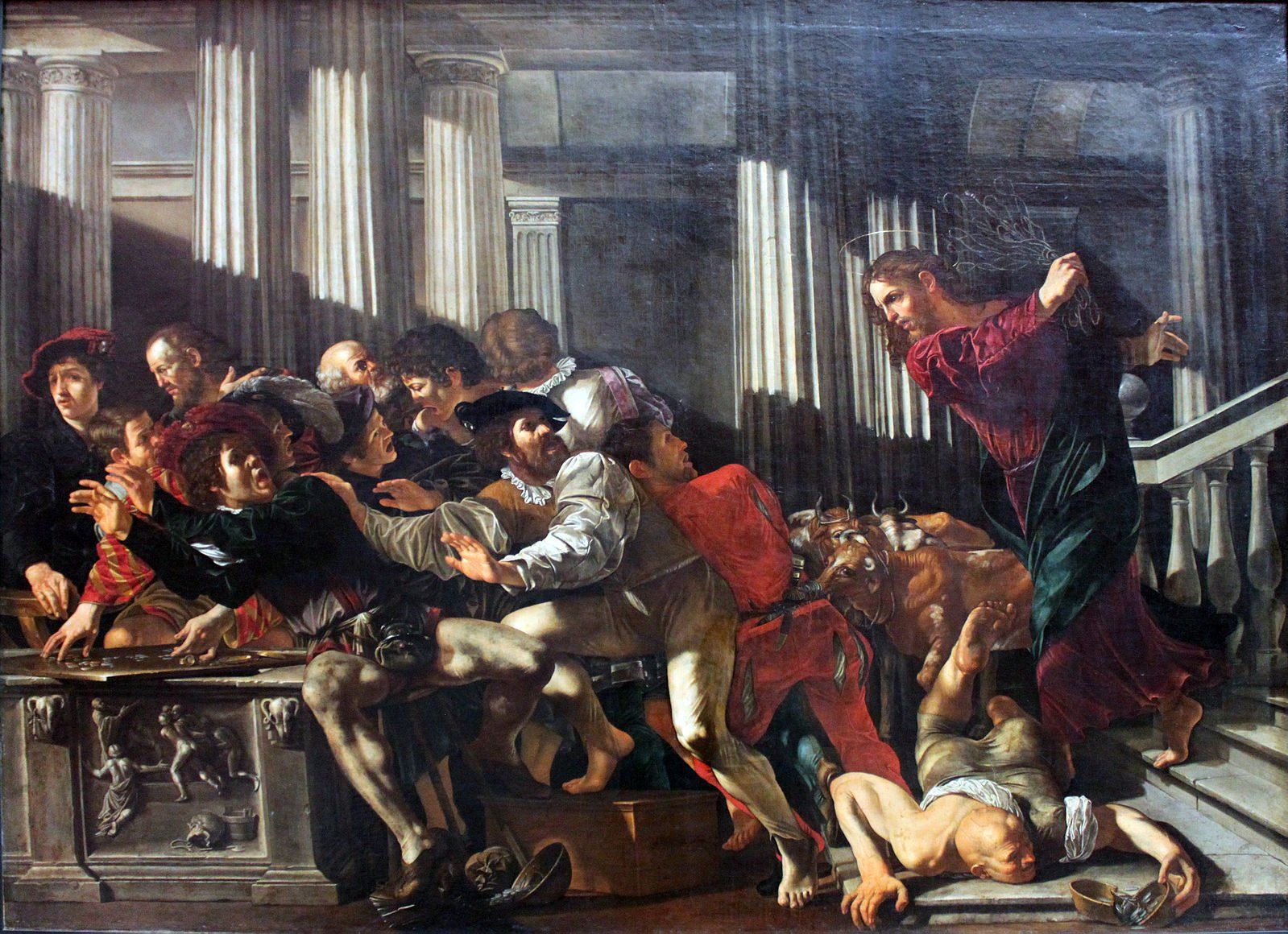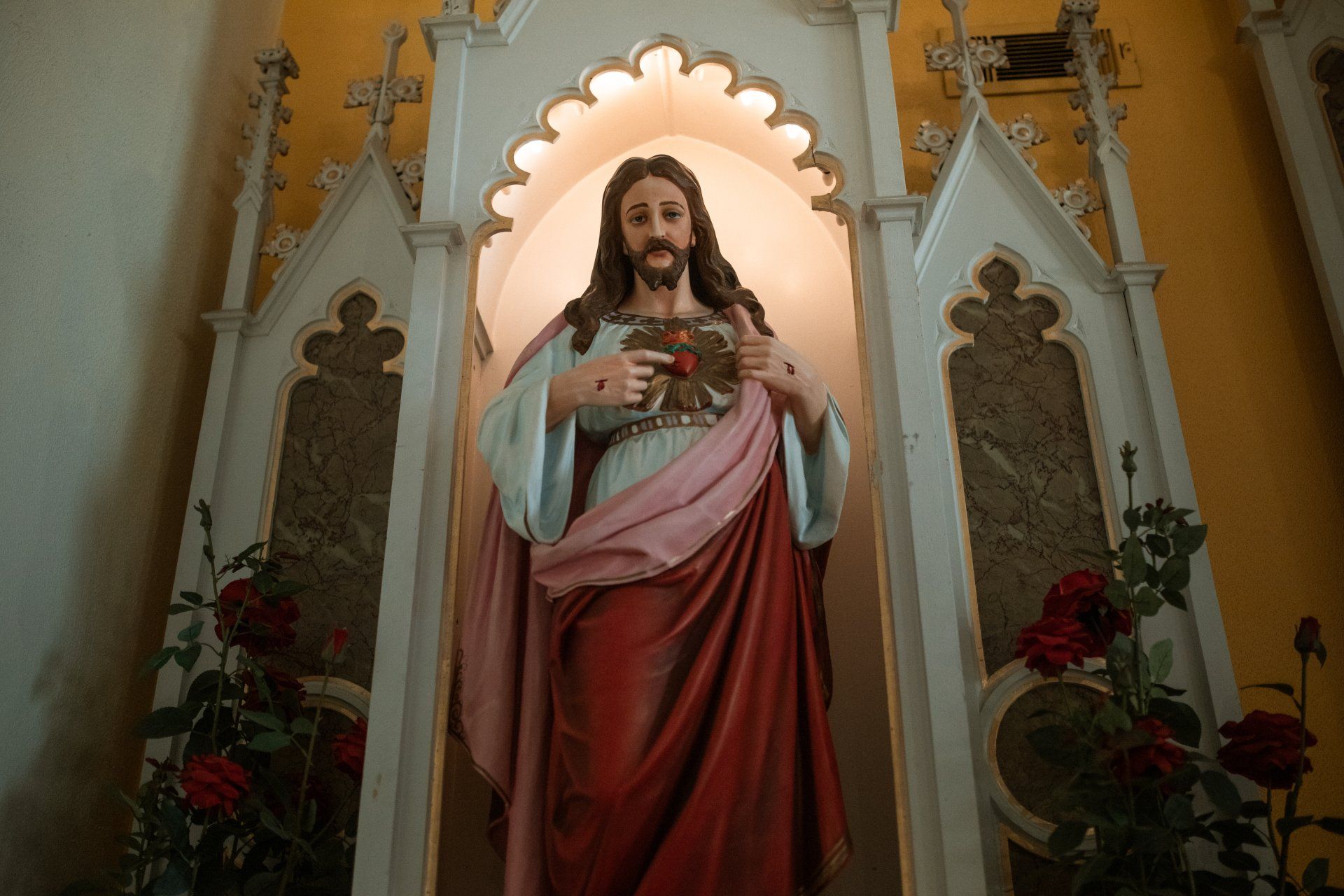tim@resuscitationblog.com
Angry Jesus, Angry Christian?
This past Sunday (3/21/2021), I talked a little bit about my journey away from evangelicalism to what I refer to as "a more orthodox view of theology and the church". Over the past few years I have often felt chagrin about what has become of the evangelical image. I once considered it to be closely aligned with the image of Christ. These days He is barely recognizable in the rhetoric and behavior demonstrated therein. While many may disagree with me, I am merely giving witness to what I have seen in the past and sadly, continue to see. These days there appears to be a meanspirited trajectory in much of what is written and spoken. An angry undertone is detectable in much of what I read and hear.
" Well", you might say, "Jesus got really angry that one day at the temple and drove out the money changers. So aren't they just being like Jesus? Perhaps the evangelicals are only writing, saying and doing what Jesus would in this same scenario. Isn't it really the same thing?" I'm glad you brought that up, because that event is referred to often when addressing the angry behaviors of the historical and contemporary church. Is it really the same thing, though? Jesus was angry because the temple had become known as a place where the poor were taken advantage of, where caste was enforced regularly and exclusivity keep the under privileged incapable of entering. The Pharisees felt nothing for the masses of broken people that daily surrounded the temple walls and sat at the gates. They merely concerned themselves with the decisions and behaviors that would benefit them the most. And what they believed was best for them was to deny access to those who were unable to contribute anything of value to them.
Maybe you think I am stretching this a little too far. That this had nothing to do with the ongoing oppression and exclusion of the broken, poor and diseased. Matthew records it all for us in his Gospel in chapter 21:12-15. He uses the words of the Jewish Scriptures from Isaiah 56 and Jeremiah 7 for the benefit of his Jewish readers. Jesus is angry that His Father's house has fallen into misuse and has become a misrepresentation of the original purpose of God for it. He quotes from Isaiah 56:7, where God states His temple will be "called a house of prayer for all nations". God's intention was to widen the scope of acceptance, not narrow it. He desired for the temple (which contained His presence) to be accessible to all. The Pharisees were creating the opposite reality. In their scheme of things they would decide who was allowed to enter and who was excluded. Jesus would be the next to be evicted. In their anger, they would later become complicit in His murder!
However, we must stay with Matthew's narrative, because he isn't finished telling us his story. We can't leave the text without looking at the very next verse. Thus Matthew records that the outcasts came to Him "in the temple", and he healed them. What? Your version doesn't say the outcasts? Sure it does! The blind and the lame came to Him! No longer excluded, or abused, or dehumanized! This is where they belonged. They needed to be there in God's presence as much as the privileged. The children knew this better than the preachers! They began to shout praises to this Healer, this man Who had angrily kicked down the barriers against inclusion and let the outcasts in! And the preachers were indignant! In these few verses, Matthew, once an outcast himself, writes the story of the difference between an angry Jesus and angry church leaders and people.
The Pharisees felt their world (their livelihood, their religion, their privileged status and their national pride) being threaten by Jesus. He was forging a new pathway forward that was rooted in God's ancient ways. God has always been on the side of the oppressed and the outcast. The Jewish Scriptures teemed with such accounts of a God Who hears the cries of the broken, misused and turned out. Even a cursory reading of the Gospels evidence Jesus embraced this same genre of the unfolding drama of redemption in the stories He told and the people He chose to invest in.
The anger of the evangelical church of North America bears scant resemblance to the 'righteous anger' of our Savior. Their anger appears to be rooted in loss, fear and resentment. They are grasping and clutching for privileges they have held to be sacred for many years. The church is losing the favored status it enjoyed for many years, whether it was well deserved is a conversation for another time. And she is angry about it! Changes abound in most arenas of life these days and that makes many circumstances very difficult to navigate. And she is angry about it! She has lost sight of the glorious light of the world and has been blindly following the fading carnival lights of her own former spectacles of event evangelism and celebrity cult. Even when she quotes from the Christian Bible, venom seems to ooze from the sides of her mouth and leaves her message smelling of the rottenness of her own selfishness. The masses have quit catering to her. And she is angry about it!
Jesus was angered, but not by His own losses. Those losses were embraced by Him because they would allow the downtrodden, the sinful, the hated, the unworthy, the...us to experience abundance! He was angered at the deprivation of others. Their rights were being threatened, if they even existed at all. The poor, the under appreciated and the broken were often the heroes in His stories. The sinful and excluded became the honored guests in His parables and his favored company most of the time. One thing He was not angered by was the dismantling of a heartless religion that favored God with their specialized vernacular, but rejected the loving and generous nature demanded of those who professed to follow the Great I AM.
What will become of the angry evangelical church? Truthfully, it has to die. Like all who claim to be followers of Jesus, death is a necessity, an eventuality. Jesus came to serve, not to be served. He came to give His life as a ransom for redeeming the sinner. That's an honorable way to die...for the good of others. We call that heroic in wartime and rescue stories. The other way to die is the death of attrition, at least, as far as the church is concerned. This comes about gradually as the effectiveness and the relevance of the church is diminished by its own self centeredness. My hope is there will be a coming to Jesus for all of us. A time when we will fully embrace His death and our own, so that we may obtain His life, as well as, our own.

+509.860.1344
tim@resuscitationblog.com
+509.860.1344



